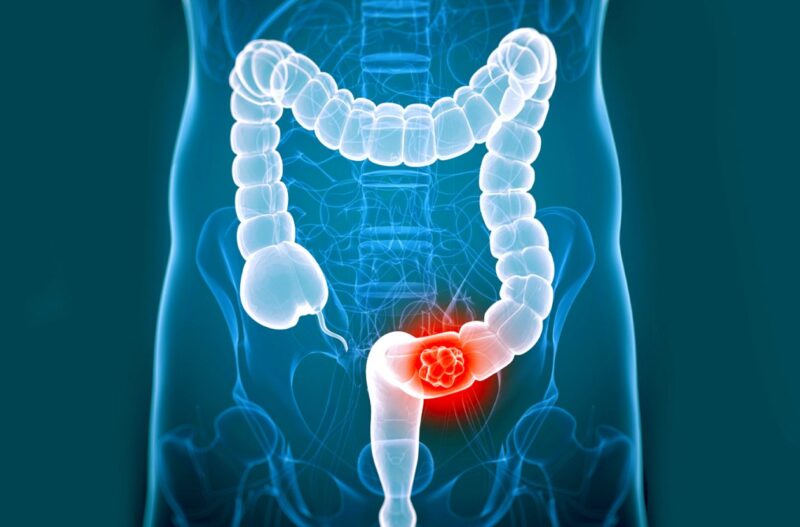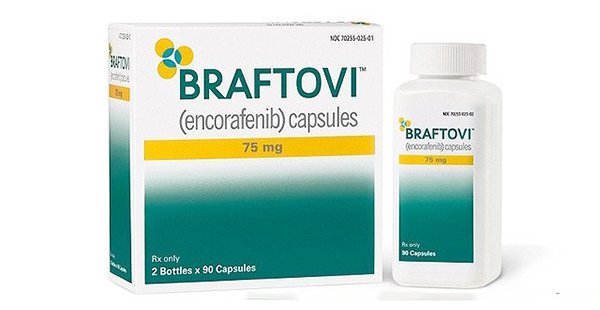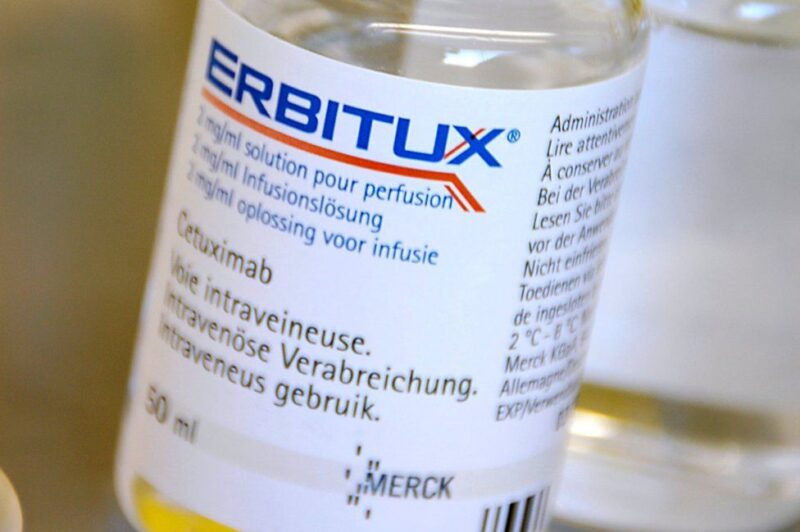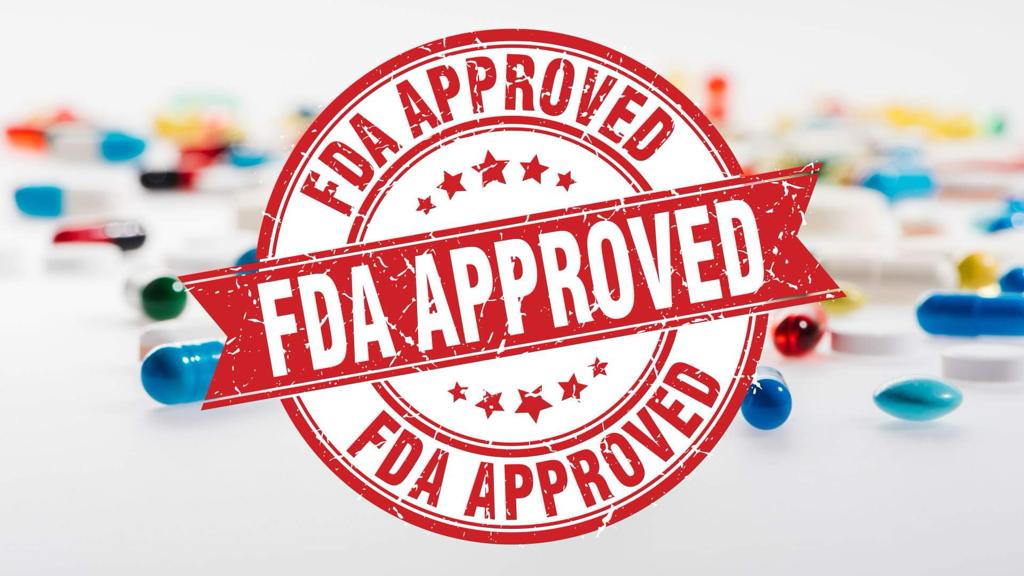On December 20, 2024, the U.S. Food and Drug Administration (FDA) granted accelerated approval to encorafenib (Braftovi) in combination with cetuximab and mFOLFOX6 for the treatment of patients with metastatic colorectal cancer (mCRC) harboring a BRAF V600E mutation, as detected by an FDA-approved test.
Colorectal cancer affects the colon or rectum and is one of the most common cancers worldwide. The risk increases with age, especially after 50. Early stages often show no symptoms, but later signs include diarrhea, constipation, blood in the stool, abdominal pain, weight loss, fatigue, and low iron levels.
The main risk factors for colorectal cancer include age, family history, personal history of colorectal cancer or certain polyps, and lifestyle factors such as diet, smoking, and alcohol consumption. The incidence and mortality rates are highest in Europe and Eastern Europe, and by 2040, the global burden of colorectal cancer is expected to rise significantly.
To reduce the risk, a healthy diet, regular physical activity, avoiding tobacco, and limiting alcohol are important. Regular screenings can help detect the disease early, improving survival chances. Colorectal cancer is the second leading cause of cancer-related deaths, and early-stage cancers generally have better outcomes.

Preventive measures include maintaining a healthy diet with high fiber, staying active, managing weight, limiting alcohol, avoiding smoking, and undergoing regular screenings starting at age 45, or earlier for those with high-risk factors. These steps can significantly lower the risk of developing colorectal cancer.
About Encorafenib
Encorafenib, marketed as Braftovi, is a small molecule BRAF inhibitor used in the treatment of specific types of cancer, including melanoma and colorectal cancer. It works by targeting key enzymes in the MAPK signaling pathway, which plays a role in various cancers, such as melanoma and colorectal cancer.
The drug is typically used in combination with other therapies:
- With binimetinib, for unresectable or metastatic melanoma with BRAF V600E or V600K mutations.
- With cetuximab, for metastatic colorectal cancer (CRC) with a BRAF V600E mutation, following prior therapy.
- With binimetinib, for metastatic non-small cell lung cancer (NSCLC) with a BRAF V600E mutation.
Common side effects of encorafenib (occurring in 25% or more of patients) include fatigue, nausea, diarrhea, vomiting, abdominal pain, and joint pain (arthralgia).
Encorafenib acts as an ATP-competitive RAF kinase inhibitor, which inhibits the phosphorylation of ERK and down-regulates CyclinD1. This disrupts the cell cycle at the G1 phase, inducing senescence rather than apoptosis. The drug is primarily effective in tumors with a BRAF mutation, which are present in about 50% of melanomas. Encorafenib is metabolized mainly through cytochrome P450 enzymes, and it has a plasma elimination half-life of approximately 6 hours.

Cetuximab
Cetuximab, marketed under the brand name Erbitux, is an epidermal growth factor receptor (EGFR) inhibitor used to treat metastatic colorectal cancer (CRC) and head and neck cancers. It is a chimeric monoclonal antibody administered via intravenous infusion. In the United States, cetuximab was first approved by the FDA in 2004 for use in head and neck cancer and, in 2009, for colorectal cancer with wild-type KRAS. In the European Union, it is approved for the treatment of EGFR-expressing, RAS wild-type metastatic CRC and squamous cell cancer of the head and neck.
In head and neck cancer, cetuximab is often combined with radiation therapy or used alone in patients who have previously received platinum-based chemotherapy. Clinical trials, such as IMCL-9815, showed improved outcomes with cetuximab added to radiotherapy. However, subsequent studies (NRG Oncology RTOG 1016 and De-ESCALaTE HPV) indicated that cetuximab was less effective than cisplatin in terms of overall survival and progression-free survival. In CRC, cetuximab is specifically used for patients with a wild-type KRAS gene mutation, which is critical for its effectiveness.
Like other cancer therapies, cetuximab has side effects. The most common adverse reactions include an acne-like rash, which is generally reversible. More severe infusion reactions may include fever, chills, rash, hypotension, and anaphylaxis. Other potential side effects include photosensitivity, magnesium wasting (leading to hypomagnesemia), and, less frequently, pulmonary and cardiac toxicity. An uncommon but significant reaction is an allergy to cetuximab, particularly in certain regions, with some individuals experiencing anaphylactic reactions upon first exposure.

Efficacy and Safety of the Drugs
Encorafenib, in combination with cetuximab and mFOLFOX6, was evaluated in the BREAKWATER trial for the treatment of treatment-naïve BRAF V600E mutation-positive metastatic colorectal cancer (mCRC). In this multicenter, open-label, active-controlled study, patients were randomized into three treatment arms:
- Encorafenib + cetuximab
- Encorafenib + cetuximab + mFOLFOX6
- Control arm (mFOLFOX6, FOLFOXIRI, or CAPOX, with or without bevacizumab)
The trial was amended to focus on the encorafenib + cetuximab + mFOLFOX6 arm and the control arm. The primary endpoint, objective response rate (ORR), was 61% in the encorafenib + cetuximab + mFOLFOX6 arm and 40% in the control arm. The median duration of response (DoR) was 13.9 months in the treatment arm compared to 11.1 months in the control arm.
The trial is ongoing, with progression-free survival and overall survival being assessed as post-marketing confirmatory evidence. The most common adverse reactions (≥25%) included peripheral neuropathy, nausea, fatigue, rash, diarrhea, decreased appetite, vomiting, hemorrhage, abdominal pain, and pyrexia. Grade 3 or 4 abnormalities (≥20%) included increased lipase and decreased neutrophil count. The recommended dose of encorafenib is 300 mg (four 75 mg capsules) orally once daily, in combination with cetuximab and mFOLFOX6, until disease progression or unacceptable toxicity.This review was conducted under Project Orbis, with collaboration between the FDA and Health Canada, and ongoing reviews at other regulatory agencies.


